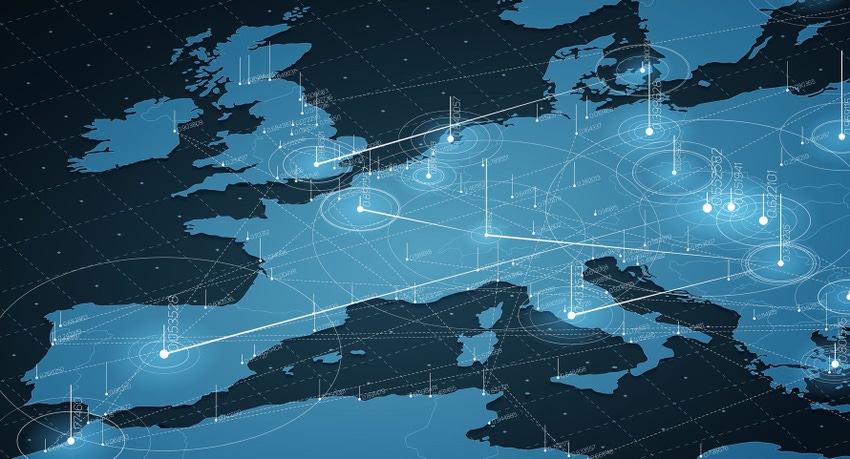US tech giants meet EU's 'gatekeeper' threshold
Seven major tech firms could soon be subject to strict new EU rules designed to curb their power.
July 5, 2023

Seven major tech firms could soon be subject to strict new EU rules designed to curb their power.
Google parent Alphabet, Amazon, Apple, TikTok parent ByteDance, Facebook parent Meta, Microsoft, and Samsung all notified the European Commission this week that they meet its threshold for being so-called ‘gatekeepers’ with the power to pick winners and losers in the Internet economy.
It’s part of the EU’s Digital Markets Act (DMA). In force since May, it seeks to safeguard online competition by imposing restrictions on certain business practices employed by platform providers – like smartphone OS makers, or search engines, for example – that have the potential to create bottlenecks in the digital economy.
Through this legislation, the EU is attempting to address some of its most pressing big tech bugbears of recent years, including pre-installed apps, favouring a platform provider’s own services over those of its rivals, and controlling access to app stores.
“Europe is completely reorganising its digital space to both better protect EU citizens and enhance innovation for EU start-ups and companies,” said Thierry Breton, EU Commissioner for the Internal Market, in a statement on Tuesday.
To qualify as a potential gatekeeper, companies must have generated at least €7.5 billion of annual revenue in Europe in the last three financial years, or have been worth at least €75 billion in the last financial year and operate in at least three EU Member States. They must have served more than 45 million monthly active users (MAUs) and more than 10,000 yearly active business users in the EU during the last three years via a number of services, such as search engines, social networking services and operating systems.
The EU has 45 days to assess the submissions of these seven qualifying companies, and decide whether or not to officially designate them as gatekeepers of specific platform services.
Any that are designated will have six months to comply with the DMA’s big list of ‘dos and don’ts’.
These include allowing end users to easily uninstall pre-installed apps or change default settings on operating systems, virtual assistants or Web browsers that steer them to the products and services of the gatekeeper and provide choices for key services. On a related note, end users must be permitted to install third-party apps or app stores that use the operating system of the gatekeeper. Furthermore, it must be as easy to unsubscribe from a gatekeeper’s core platform services as it is to subscribe to them.
The DMA rules also stipulate that messaging apps must be interoperable. This is crucial for Apple, which deliberately doesn’t make its default messaging app, iMessage, interoperable with Android, for competitive reasons.
When it comes to online advertising, companies must be able to access the gatekeeper’s performance-measuring tools and ad performance data. Business users must also be allowed to promote their offers and conclude contracts with customers outside the gatekeeper’s platform, and gatekeepers must provide business users with access to the data generated by their activities on their platform.
In addition, gatekeepers will be banned from using data gleaned from business customers that use their platform to offer a competing service. For example, Amazon can’t get the inside track on rival sellers on its online shopping platform by harvesting and analysing their data.
Gatekeepers won’t be allowed to rank their own products or services in a more favourable manner to those of third parties – a shot at Google in particular.
Meanwhile, app store owners like Apple and Google won’t be allowed to force developers to use their payment systems. They won’t be allowed to track the activities of end users beyond the scope of their platform for the purpose of targeted advertising without consent either – that’s one for Meta to take note of.
A fair few, well-worn counter-arguments could be in the offing from big tech over the next 45 days and six months.
For instance, Apple has historically argued in favour of operating a walled garden in the name of preserving quality. It wants to maintain a high standard of user experience, ergo it wants to dictate which app stores, services and payment methods appear on its platform.
Device makers like Samsung want to differentiate on more than just hardware, which is more challenging given that every tablet and smartphone that isn’t an Apple device runs on Android. So, its products come pre-installed with Samsung apps. The majority of them may well be bloatware taking up an unnecessarily large amount of storage space, but it comes with the territory when buying a Samsung.
Meanwhile, Google is likely to argue that it already gives users a choice of browser and app store on its devices, and point out that Amazon’s Fire OS is a modded version of its operating system. Similarly, Microsoft gives Windows customers a choice of browser when they boot up for the first time, and default apps for email, maps, content and document editing are up to the end user.
Will these arguments fall on deaf ears? Probably. The DMA has been in the works for years and is officially in force, so the EU is hardly going to change tack now.
Non-compliance is hardly an option either. Violations will incur a fine of up to 10 percent of the gatekeeper’s total worldwide annual turnover, or 20 percent if they are a repeat offender. Periodic penalties of up to 5 percent of daily turnover are also in the EU’s armoury.
“Consumers will have more services to choose from, more opportunities to switch providers, and will benefit from better prices and higher quality services,” Breton said on Tuesday. “Innovative companies will no longer be prevented from reaching new customers. That is what the DMA is all about.”
Get the latest news straight to your inbox. Register for the Telecoms.com newsletter here.
About the Author(s)
You May Also Like











_1.jpg?width=300&auto=webp&quality=80&disable=upscale)


.png?width=800&auto=webp&quality=80&disable=upscale)